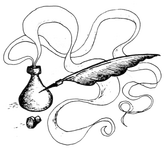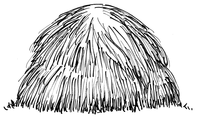Play P.S.
Dear old and new friends,
Last week’s Haystack reflection on the necessity for play appeared the same week as a New York Times’ article by David Kohn, entitled, “Let the Kids Learn through Play.”
Kohn wrote how sadly the practice of twenty years ago has been abandoned where those kids in preschool, kindergarten and even the first and second grades spent most of their time in play activities.
Parents excitedly supported dropping their children’s “play time” so they could get an early start ahead of others in the race to success, and didn’t complain when educators in the earliest grades introduced teacher-led instruction in math and reading. The concept looked logical; drop wasted play time and begin real education earlier and you will have smarter children.
“All work and no play makes Jack a wise boy,” actually has the opposite effect studies have shown, potentially slowing emotion and intellectual growth. It also appears to deaden children’s desire for learning. Kohn reveals how by the end of the fourth grade those children who had early didactic instruction (some as early as ages 4 and 5) in preschool and primary grades actually earned lower scholastic grades than those allowed to play in those same grades!
“Stop playing around!” is a common command directed towards kids and adults engaged in immature behavior. It might be better to say to both, “Play around more!” Dr. David Whitebread of Cambridge University says of play’s importance to children, “It is essential to their development. They need to learn to persevere, and to control attention and emotions. Kids learn these things through playing.”
A good question to ask is what do we adults learn through our play? Do you recall any key knowledge you learned in your adult play. A child learns in play how to control…and an adult in play learns to let go of controlling. The old familiar sign says it well, “Gone fishing” (or taking a nap; God is in control). As grown-up children, when we can relax and play we proclaim that everything doesn’t depend upon us, a silly messianic illusion we easily harbor.
Stuart Brown, M.D. says, “The opposite of play is not work—it’s depression!” Studies have shown that people are happier on weekends than during the week. The reason’s oblivious—weekends are not for work time, but to goof off and play around.
Dr. E. Hays of Nonsense University says, “For good mental health and greater enjoyment of life convert all the days of the week into days of the weekend.”


 RSS Feed
RSS Feed